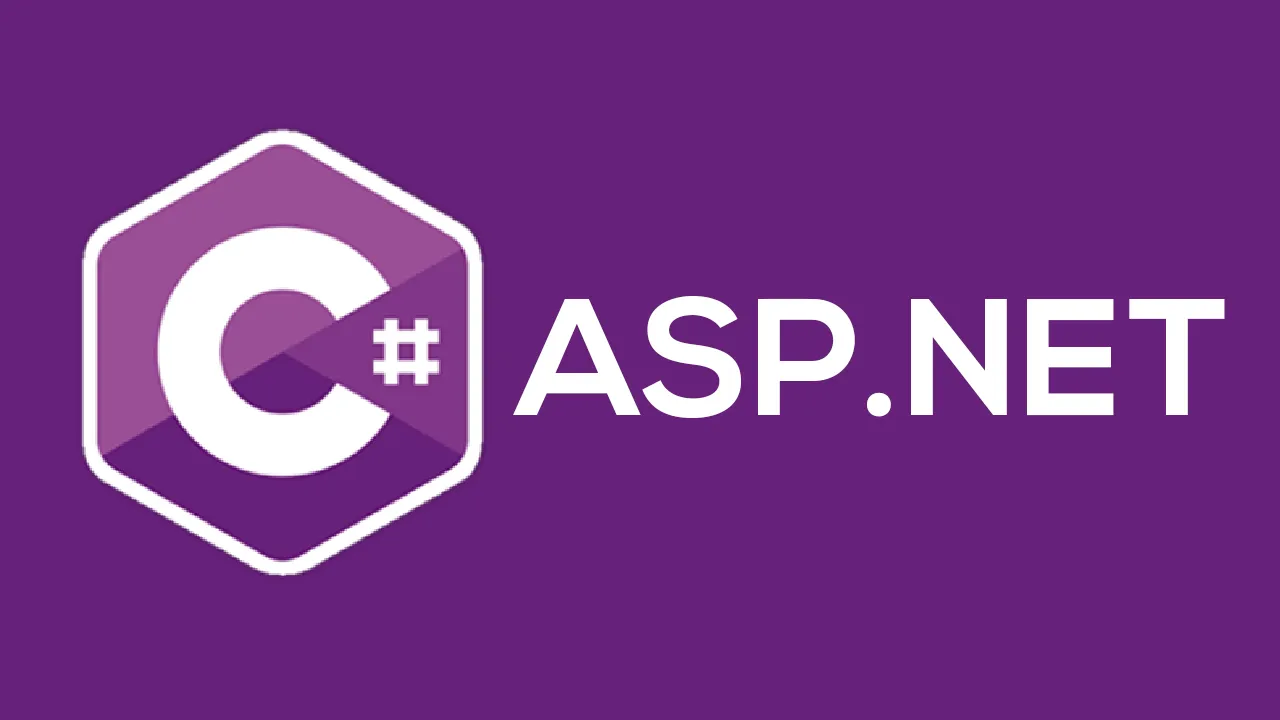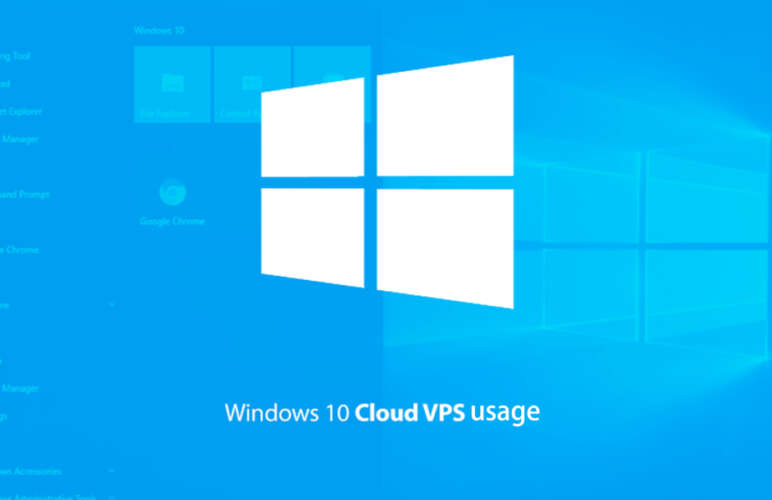Forex VPS ASP.NET

In today’s digital era, web applications are pivotal in the operations of businesses worldwide. Choosing the right web hosting platform is crucial to ensure seamless performance and convenient accessibility. ASP.NET hosting, constructed on Microsoft’s robust web development framework, offers a plethora of beneficial features, rendering it an exceptionally favorable choice for web hosting.
Jump To...
Explaining ASP .NET Hosting
Before delving into ASP.NET hosting for your Windows server, it’s essential to grasp the fundamentals of ASP.NET itself.
ASP.NET is a server-side web application framework developed by Microsoft. As a component of the .NET platform, it empowers developers to craft scalable, dynamic web applications utilizing various programming languages. Its attributes encompass MVC architecture, robust security measures, facilitation of Web API development, real-time functionality through SignalR, and cross-platform hosting capabilities.
What exactly is ASP.NET Web Hosting?
ASP.NET hosting entails deploying and operating ASP.NET web applications on a web server. This process involves configuring the hosting environment to support ASP.NET applications, ensuring seamless performance, security, and accessibility.
ASP.NET hosting provides specialized servers and infrastructure optimized for running ASP.NET applications, along with additional features and tools tailored to meet the unique requirements of ASP.NET development.
While ASP.NET web services are commonly associated with the Windows operating system, they are not exclusively limited to it.
Historically, ASP.NET was primarily developed for and supported on Windows servers.
However, with the introduction of .NET Core, Microsoft expanded the platform’s capabilities to be cross-platform. ASP.NET Core, built on .NET Core, enables the development and hosting of ASP.NET applications on both Windows and non-Windows platforms, such as Linux and macOS.
How to Select the Optimal ASP.NET Hosting Provider?
Selecting the appropriate web hosting company for your ASP.NET web application can profoundly influence its performance, reliability, and overall success.
Given the plethora of hosting plans accessible, it’s imperative to assess various factors to guarantee an informed decision that aligns with your app’s operating system requirements and lays the groundwork for its sustained success.
Server Stability and Uptime
When choosing a web hosting plan, one of the foremost considerations is the reliability of the web servers and the uptime guarantee provided by the provider.
Seek out a web hosting company with a proven track record of maintaining high server uptime, ideally offering a guarantee of 99.95% or higher.
Downtime can lead to lost revenue and harm to your reputation, so it’s crucial to ensure that the hosting company possesses robust infrastructure and backup systems to mitigate the risk of downtime.
Performance and Velocity
The server capabilities provided by the hosting provider significantly impact the speed and responsiveness of your ASP.NET web applications.
When selecting a hosting plan, prioritize options that offer modern server hardware, generous resources, and optimized server configurations. Features such as solid-state drives (SSDs), abundant RAM, and high-speed network connections contribute to quicker page load times and enhance the user experience on your Windows server.
Scalability Features
Take into account your application’s potential for growth and opt for a provider that offers scalable ASP.NET hosting plans. Look for options with unlimited disk space or the capability to effortlessly upgrade server capacity as your app’s requirements evolve.
A scalable hosting account empowers your application to manage augmented traffic and accommodate future expansion without experiencing performance degradation.
Security Protocols
A secure hosting environment is essential to safeguard your application, sensitive data, and user information from potential threats.
Verify that the web host implements robust security measures, including firewalls, intrusion detection systems, malware scanning, and regular security updates.
Furthermore, inquire whether they provide SSL certificates for secure data transmission and offer DDoS protection to mitigate the risk of distributed denial-of-service attacks.
Support for ASP.NET Framework Iterations
Ensure that the hosting provider supports the specific version of the ASP.NET framework required by your application. Some common versions include editions for the operating system and MS SQL.
This verification ensures compatibility and enables you to leverage the latest features, performance enhancements, and security updates provided by the framework.
Database Compatibility
Consider your database requirements and confirm whether the provider supports the database system your ASP.NET application relies on, such as Microsoft SQL Server or MySQL.
Ensure that the ASP.NET hosting provider offers dependable database management tools, sufficient storage capacity, and efficient data retrieval capabilities to meet your application’s needs.
Control Panel and Ease of Management
A user-friendly and intuitive control panel streamlines the management of your ASP.NET environment.
Numerous Windows hosting plans include the Plesk Control Panel, which offers features like one-click application deployment, free domain registration, database management interfaces, and server configuration options.
Technical Support
Prompt and knowledgeable support is crucial for timely issue resolution, minimizing downtime and disruptions to your application.
Assess the level of technical support offered by the service provider across their hosting packages. Ideally, they should offer 24/7 support through multiple channels such as live chat, email, or phone.
Cost and Value
Contrast the hosting fees of various .NET hosting packages.
Evaluate the attributes and resources bundled with each plan, such as storage capacity, data transfer limits, domain provisions, and supplementary offerings like complimentary domain registration, seamless site transfer, automated data backups, user-friendly control panel access, or inclusive SSL security.
Choose the plan that offers the most bang for your buck, ensuring it fulfills your application’s requirements without unnecessary costs. Additionally, confirm the presence of a money-back guarantee for added security. In the event of dissatisfaction with the service, you can request a refund based on the conditions outlined in the guarantee.
Reputation and Client Feedback
Explore the reputation and customer feedback of the Windows hosting provider that has caught your interest.
Assess the satisfaction levels of current customers by reviewing their feedback on independent review platforms orforums.Gather unbiased opinions from independent review sites or forums.
A hosting provider with a favorable reputation and content NET developers is more inclined to offer dependable hosting plans and excellent support.
Understanding the Mechanics of ASP.NET - How Does It Operate?
ASP.NET stands out as a widely utilized web development framework, empowering developers to craft dynamic and engaging applications.
Under the hood, ASP.NET harnesses a sturdy architecture and an array of potent components to manage diverse facets of application development and execution.
Request Handling
Central to ASP.NET’s functionality is its capability to manage incoming HTTP requests.
Upon a user accessing an ASP.NET web application, the web server receives the request and forwards it to the ASP.NET runtime. Subsequently, the runtime undertakes the processing of the request, identifying the suitable page or resource to manage it according to routing and configuration parameters.
Page Lifecycle
ASP.NET adopts a page-based model, wherein each web page corresponds to a distinct class inheriting from the Page class. Throughout the page lifecycle, multiple events are triggered, enabling developers to write code and alter the page’s state at designated stages.
State Management
ASP.NET offers several methods for handling state across multiple page requests.
The ViewState facilitates the preservation of control values during postbacks, ensuring the page retains its state. Session state permits the storage of user-specific data that remains accessible throughout the session, while Application state holds information available to all users of the application.
Server Controls
ASP.NET presents an extensive array of server controls that encapsulate HTML elements and furnish server-side functionality. These controls, encompassing text boxes, buttons, grids, and validators, streamline development by abstracting much of the underlying HTML and offering robust server-side events and properties. They empower developers to fabricate dynamic and interactive web interfaces devoid of extensive manual coding efforts.
Data Access
ASP.NET integrates potent data access functionalities, simplifying database connections and data retrieval or manipulation processes.
Developers leverage ADO.NET, ASP.NET’s data access component, to interact with databases via various providers like Microsoft SQL Server. ADO.NET offers capabilities such as connection pooling, data binding, and stored procedure support, facilitating efficient and secure data management.
Authentication and Permission
Security plays a vital role in web hosting, and ASP.NET offers inherent authentication and authorization mechanisms.
Developers have access to Forms Authentication, Windows Authentication, and other authentication providers to verify users’ identities and regulate their access to resources.
ASP.NET facilitates role-based security, enabling precise control over which users can access particular sections of the application.
Caching and Performance Enhancement
ASP.NET incorporates robust caching mechanisms to bolster application performance. Caching allows the retention of frequently accessed data or rendered pages in memory, mitigating the necessity for repetitive processing and database queries.
By employing caching efficiently, developers can notably enhance the response time and scalability of their applications.
Varieties of ASP.NET Hosting
There are various ASP.NET hosting options available, each providing distinct levels of control, resources, and scalability.
Shared hosting entails hosting multiple websites on a single server, with each site sharing the server’s resources. It offers cost-effective solutions suitable for small to medium-sized websites with moderate traffic.
VPS hosting offers a virtualized private server within a shared hosting environment. It provides increased control and resources compared to shared hosting, as each VPS functions independently with dedicated resources.
Dedicated hosting entails leasing an entire dedicated server exclusively for your website. It delivers maximum control, customization, and resources, making it ideal for large-scale websites with high traffic and resource-intensive applications.
Cloud hosting utilizes a network of interconnected servers to distribute resources and ensure high availability. It offers scalability, flexibility, and on-demand resource allocation, making it perfect for expanding websites and applications.
Managed hosting involves delegating server management tasks to the provider. They handle responsibilities such as server setup, maintenance, security, and backups, enabling developers to concentrate on application development.
With self-hosting, you maintain full control over the hosting environment by managing your server infrastructure. This option demands advanced technical expertise and suits experienced developers or organizations with specific hosting requirements.
Operating System Choices for ASP.NET Hosting
Selecting the appropriate operating system (OS) is a pivotal decision that can profoundly influence the performance, compatibility, and scalability of your web applications.
Windows hosting stands out as the predominant and extensively utilized OS for ASP.NET hosting. It boasts seamless integration with Microsoft technologies and native support for ASP.NET, .NET Core, MS SQL Server, and Internet Information Services (IIS).
While ASP.NET is commonly associated with Windows hosting, options exist for hosting applications on Linux-based servers. Linux hosting accommodates a broad spectrum of open-source technologies such as PHP, MySQL, Apache, and NGINX.
When deliberating on the operating system for your ASP.NET hosting, consider the following factors:
1. Application Requirements: Ensure the selected OS supports the version of ASP.NET and associated frameworks required by your application.
2. Integration Needs: Take into account any specific integration requirements with technologies like MS SQL Server or IIS. Windows hosting offers seamless integration with Microsoft tools, while Linux hosting provides compatibility with open-source technologies.
3. Development Environment: Evaluate your familiarity and expertise with the respective operating systems. If you have a background in Windows development, Windows hosting may provide a more familiar environment. Conversely, Linux hosting might be preferable if you lean towards an open-source stack.
Exploring the Robust Capabilities of ASP.NET for Web Development
ASP.NET provides a diverse range of programming functionalities that enable developers to craft outstanding applications and dynamic websites, including the following.
Programming Characteristics and Flexibility
Backed by compatibility with various programming languages such as C#, Visual Basic, and F#, developers have the liberty to select their preferred language for development. This adaptability, coupled with an extensive assortment of libraries and frameworks, facilitates efficient and flexible development, thereby boosting productivity and promoting code reusability.
Software Applications and Dynamic Websites
Benefiting from its robust architecture and comprehensive libraries, developers have the capability to craft potent applications tailored to diverse domains. Additionally, it provides effortless integration with databases, including the widely-used MS Access, facilitating streamlined data management and retrieval processes.
Complimentary Migration and Multi-Site Hosting
Several providers extend migration assistance at no extra cost, simplifying the transfer of existing websites to their platform. This provision saves time and effort, ensuring a seamless transition.
Moreover, ASP.NET hosting facilitates the hosting of multiple sites on a single hosting plan, enabling businesses to efficiently manage numerous projects under one roof.
SSL Certificate Encryption
In today’s digital realm, security holds utmost importance, and ASP.NET plays a significant role in bolstering it through its robust support for SSL encryption. This potent feature plays a crucial role in ensuring secure communication between websites and their visitors by establishing an encrypted link.
The implementation of an SSL certificate not only fosters trust but also fortifies sensitive data against potential threats, positioning ASP.NET as a dependable option for developing secure web applications.
Improved Security Surveillance
ASP.NET integrates built-in security mechanisms and seamlessly interfaces with a myriad of security tools, empowering developers to actively monitor and address security vulnerabilities.
Optimized Performance
The ASP.NET framework leverages features such as just-in-time compilation, caching, and dynamic content compression to diminish load times and enhance responsiveness, culminating in an outstanding user experience.
Frequently Asked Questions
The primary distinction between ASP.NET hosting service and .NET Core hosting service lies in the framework versions and their respective capabilities.
ASP.NET hosting service pertains to hosting applications constructed with the conventional ASP.NET framework, primarily designed for Windows hosting servers and Windows operating system applications.
On the other hand, .NET Core hosting supports cross-platform compatibility and delivers enhanced performance and efficiency. It enables applications to operate on diverse operating systems, adopts a modular architecture, and offers more versatile deployment options.
To connect and administer both MySQL and SQL Server databases in ASP.NET hosting using SQL Management Studio, you can employ the “Registered Servers” functionality.
Start by registering the server particulars for both MySQL and SQL Server databases in SQL Management Studio.
Once registered, you can effortlessly switch between the databases and execute various tasks, including running queries, managing database objects, and performing administrative functions seamlessly within ASP.NET hosting.
Windows hosting with ASP.NET amalgamates the Windows Server operating system, Windows hosting environment, and SQL databases, furnishing a holistic hosting solution for ASP.NET applications. It capitalizes on the innate integration and compatibility of Windows Servers with ASP.NET frameworks, facilitating the seamless deployment and execution of ASP.NET applications. Furthermore, Windows hosting supports SQL databases such as Microsoft SQL Server, ensuring efficient data storage and management capabilities.
Visual Studio stands as a widely embraced integrated development environment (IDE) catering to ASP.NET development. Developers can harness the robust features and tools furnished by Visual Studio to craft, debug, and deploy ASP.NET applications.
The Plesk control panel seamlessly integrates with ASP.NET hosting. It offers the capability to configure and oversee ASP.NET websites, databases, email accounts, and other associated services.
MVC stands as a potent framework for constructing web applications, employing the Model-View-Controller architectural pattern. ASP.NET hosting fully accommodates the deployment and execution of ASP.NET MVC applications.
Numerous ASP.NET hosting providers extend support for hosting both ASP.NET Core and Classic ASP applications on the same hosting platform. This flexibility empowers developers to host and manage various types of web applications within a unified hosting environment.




